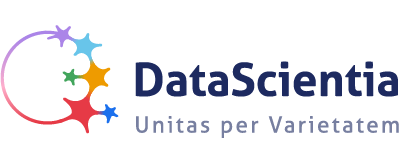GENERAL DESCRIPTION
This course will cover the following topics:
- What are Knowledge Graphs (KGs)
- What Knowledge Graphs can be used for, and example of already used KGs
- What does it means to build a KG
- How to reduce the cost of data use and reuse, exploiting KG
- How to solve the different problems involved in KG construction, using the iTelos KGE methodology
- How to use new and existing tools and libraries to address the problems encounterd in KGs construction
- How to develop an entire project of KGE on real-world case studies
INSTRUCTION
The 2023 edition of KGE is taught in presence. As for the last years, presence, even if not a formal requirement, is strongly suggested given that this is a hands-on lab course. Passing the exam amounts to developing a project, which ultimately will lead to the generation of a Knowledge Graph (and support documentation) starting from data provided by the lecturers. This course and project work will develop under the continuous supervision of the lecturers, in collaboration with a colleague. There are no easy or cost-effective ways to develop the project without a continuous presence in class.
The lectures will take place following the scheduling indicated in the section “Calendar and Material”. The course material includes slides, demo videos, support resources and links, all provided on the web site. After each main phase of the project, there will be a Q&A lecture during which the students can ask questions about all their open problems and doubts.
At the end of the course students will be asked to fill an online questionnaire about the overall process and methodology they will have learned. This feedback is very important to us, as it is the basis for a continuous evolution and improvement of the course and methodology being taught. To this extent students are strongly encouraged to raise doubts, ask questions, discuss the doubts they have about the methodology itself during the Q&A lectures.
COURSE DESCRIPTION
This course is taught in English. This is a 14 week, 48 hours, six credit, advanced course on how to develop a Knowledge Graph (KG) starting from data – to be cleaned and adapted – which are already available. This is a hands-on course. After a few introductory classes, students are given a problem to solve and they will build a knowledge graph solving this problem. A limited set of teaching material is available, mainly in form of slides. The student will learn mainly by doing the actual work and by interacting with the teacher and tutors. The exam consists in: writing a project report, giving a demo and making a public presentation.
LEARNING OUTCOMES
The Knowledge Graph Engineering (KGE) course aims to teach what are Knowledge Graphs, which are their possible usages and features, and what it means to build a KG. During the curse the students will discover the different issues to be addressed when a KG is built, learning which are the activities to be executed to that end, as per the current state of the art on Knowledge Graph Engineering. The course will teach an innovative methodology for Knowledge Graph Engineering, called iTelos. The methodology, will be applied by the students over real-world use case. By applying iTelos, the students will learn how to execute together the several activities involved in the construction of Knowledge Graphs. Moreover, such a process will be supported, within the course, by the usage of specific tools and libraries that the students will learn in order to solve the issues encouterd.
COURSE MODALITY
Theory:
Lectures about KGE and the iTelos methodology, which aims to be the approach to be used to achieve the course objectives. iTelos is divided into 4 main phases that will shape the theoretical body of the course.
Practice:
During the whole course the students (grouped in teams) will be asked to carry on a KGE project assigned by tutors, relative to real-world case studies. The student will apply the iTelos methodology to produce a KG suitable to satisfy the purpose of the projects assigned.
Modality:
Theory and practice will go on in parallel. The lectures will describe the problems and the solutions, proposed by the iTelos methodology, that will be then immediately applied in practice over the projects assigned.
The course requires the student’s presence in the classroom for the theoretical lectures (difficult to be learnt by only reading the slides provided lecture by lecture). Moreover, a strong cooperation between the team members is required to carry on the project’s development along the course.
CALENDAR AND MATERIAL
The course runs from Sep, 11, 2023 till Dec XX, 2023 with the following schedule
- Monday, 17:30-19:30, Room A209
- Wednesday, 9:00-11:30, Room A224
Course Features
- Lecture 0
- Quiz 0
- Duration 48 hours
- Skill level All levels
- Language English
- Students 273
- Assessments Yes
Requirements
- Not formal pre-requisites but the following will help a lot:
- Data management: basic programming skills in python and/or java/javascript
- Databases modeling: ER modeling, (Ontology modeling if possible, Ontology definition desirable)
- Web languages (mainly RDF and OWL)
- Attitude to teamwork
Target audiences
- The intended target are the students of the master degree in Computer Science of the Department of Computer Science and Information Engineering (DISI) of the University of Trento.



